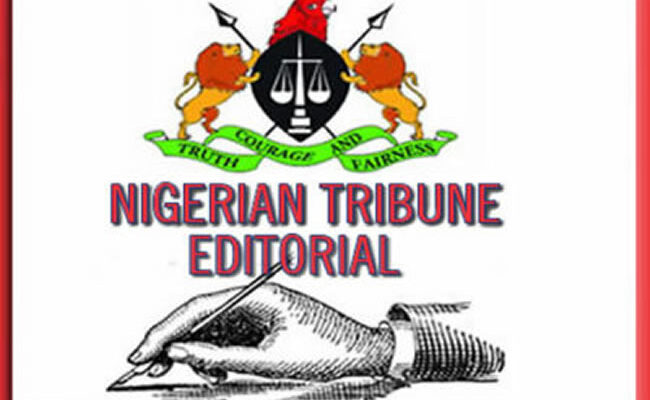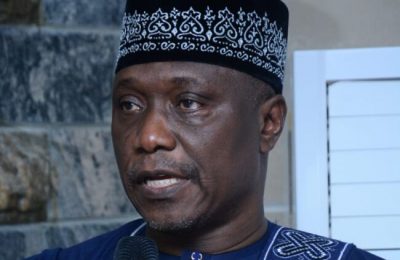
LAST year, the Economic and Financial Crimes Commission (EFCC) dismissed 27 officers for allegedly engaging in fraudulent activities and misconduct. This information was disclosed in a statement by the EFCC’s Head of Media and Publicity, Dele Oyewale, via the commission’s official X account. The dismissals followed recommendations by the EFCC’s Staff Disciplinary Committee and were approved by the Executive Chairman, Mr. Ola Olukoyede. The affected officers were found guilty of various offences linked to fraud and misconduct. Furthermore, the EFCC detained 10 officers on January 8 for allegedly stealing operational items that they could not account for. The officers were accused of breaking into the EFCC’s exhibit room and stealing foreign currency and gold items. In his statement, Oyewale reiterated that the detentions were part of ongoing efforts to eliminate corrupt practices within the commission. “Ten officers of the Lagos Zonal Command are currently being detained in connection with an investigation into missing operational items,” he noted.
These revelations expose a troubling paradox: members of an anti-corruption agency are themselves entangled in corrupt practices. Such incidents not only undermine the EFCC’s credibility but also raise serious concerns about whether these individuals fully comprehend the organisation’s critical mandate. The very institution tasked with combating graft cannot afford to become a haven for the same practices it was created to eradicate. To address this issue effectively, the EFCC must undertake a comprehensive reassessment of its recruitment process. It should develop and implement more stringent vetting mechanisms to ensure that only individuals with impeccable integrity and a genuine commitment to its mission are selected. Recruitment should prioritise character, ethical standards, and a demonstrated alignment with the principles of accountability and transparency.
Equally important is the need for regular updates on the commission’s internal reforms and the actions taken against corrupt personnel. This transparency will not only rebuild public trust but also reinforce the perception that the EFCC remains resolute in its fight against corruption, both externally and within its own ranks. While it is commendable that the EFCC has openly addressed these internal lapses, it is essential that it goes beyond mere dismissals or detentions. Those found guilty of misconduct must face the full weight of the law, setting a clear precedent that no one within the organisation is above accountability. Taking such a proactive approach could also encourage victims of unscrupulous EFCC officers to come forward with their stories, knowing that their grievances will be taken seriously and addressed decisively. By fostering this level of public confidence, the EFCC can strengthen its partnership with citizens in the broader fight against corruption.

Despite these internal challenges, the EFCC has made significant strides in its mission to combat corruption and remains one of the few institutions that political actors and other influential individuals still fear. To sustain and amplify this impact, the commission must continue to cleanse its ranks rigorously, ensuring that all personnel adhere to the highest standards of integrity and accountability. Transparency in handling these cases demonstrates the current EFCC leadership’s determination to confront internal corruption while exposing systemic vulnerabilities within the institution. However, the commission must go further by ensuring that offenders are not only dismissed or detained but also subjected to thorough investigations and prosecuted to the fullest extent of the law. Such actions would serve as a deterrent to others and signal the commission’s unwavering commitment to its mandate.
Moreover, the EFCC must undertake a comprehensive refinement of its operational framework to address systemic vulnerabilities and prevent future lapses. A robust operational framework should prioritise strengthening internal oversight mechanisms to ensure transparency, accountability, and adherence to ethical standards across the organisation. Key to this effort is the enhancement of whistleblowing policies. The EFCC should create an environment where staff and external stakeholders feel safe and encouraged to report unethical behaviour or misconduct without fear of retaliation. This could involve establishing secure and anonymous reporting channels, providing legal protections for whistleblowers, and ensuring that all reports are thoroughly investigated with clear and timely outcomes. In addition, implementing regular and comprehensive audits of the commission’s operations is essential. These audits should cover both financial and operational activities, with a focus on identifying and addressing any irregularities promptly. Independent external reviews could also be considered to provide unbiased assessments and reinforce the credibility of the audit process.
Again, fostering a culture of accountability at all levels of the EFCC is equally critical. This involves setting clear performance and ethical benchmarks for all staff, accompanied by regular evaluations to measure adherence. The management must lead by example, demonstrating unwavering commitment to the principles of integrity and transparency. Training programmes on ethics and anti-corruption principles should be a mandatory part of the professional development of all EFCC personnel, ensuring that the organisation’s values are deeply ingrained in its workforce. Furthermore, the EFCC should continue to invest in modernising its operational tools and technologies to enhance oversight and reduce opportunities for corruption. Leveraging digital solutions, such as advanced case management systems and real-time tracking of assets and evidence, can improve transparency and mitigate risks of mismanagement or theft.
The EFCC requires a resilient structure that not only prevents lapses but also positions the organisation as a model of accountability and efficiency. Through decisive and transparent actions that prioritise integrity in recruitment and reinforce internal safeguards, the EFCC can rebuild its credibility and reinforce public confidence in its operations. Nigerians hold the commission to high standards. It must meet these expectations by fulfilling its mandate and keeping its position as the cornerstone in Nigeria’s fight against corruption.
READ ALSO: EFCC sacks 27 officers over fraudulent activities, misconduct








